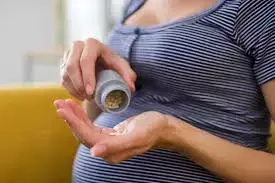- Home
- Medical news & Guidelines
- Anesthesiology
- Cardiology and CTVS
- Critical Care
- Dentistry
- Dermatology
- Diabetes and Endocrinology
- ENT
- Gastroenterology
- Medicine
- Nephrology
- Neurology
- Obstretics-Gynaecology
- Oncology
- Ophthalmology
- Orthopaedics
- Pediatrics-Neonatology
- Psychiatry
- Pulmonology
- Radiology
- Surgery
- Urology
- Laboratory Medicine
- Diet
- Nursing
- Paramedical
- Physiotherapy
- Health news
- Fact Check
- Bone Health Fact Check
- Brain Health Fact Check
- Cancer Related Fact Check
- Child Care Fact Check
- Dental and oral health fact check
- Diabetes and metabolic health fact check
- Diet and Nutrition Fact Check
- Eye and ENT Care Fact Check
- Fitness fact check
- Gut health fact check
- Heart health fact check
- Kidney health fact check
- Medical education fact check
- Men's health fact check
- Respiratory fact check
- Skin and hair care fact check
- Vaccine and Immunization fact check
- Women's health fact check
- AYUSH
- State News
- Andaman and Nicobar Islands
- Andhra Pradesh
- Arunachal Pradesh
- Assam
- Bihar
- Chandigarh
- Chattisgarh
- Dadra and Nagar Haveli
- Daman and Diu
- Delhi
- Goa
- Gujarat
- Haryana
- Himachal Pradesh
- Jammu & Kashmir
- Jharkhand
- Karnataka
- Kerala
- Ladakh
- Lakshadweep
- Madhya Pradesh
- Maharashtra
- Manipur
- Meghalaya
- Mizoram
- Nagaland
- Odisha
- Puducherry
- Punjab
- Rajasthan
- Sikkim
- Tamil Nadu
- Telangana
- Tripura
- Uttar Pradesh
- Uttrakhand
- West Bengal
- Medical Education
- Industry
Once Daily extended release Nifedipine Effective for Blood Pressure Management in Pregnancy, finds study

A recent retrospective analysis of hypertension management during and after pregnancy revealed that extended-release nifedipine dosed at 60mg once daily (QD) is as effective as the 30mg twice daily (BID) regimen for managing blood pressure (BP) in pregnant and postpartum patients with hypertensive disorders.. The study spanned over 6 years, from January 2015 to April 2021, and the findings of this study were published in the American Journal of Perinatology.
The primary goal was to assess whether the single daily dose could match the effectiveness of the twice-daily regimen in controlling blood pressure (BP) during the antepartum and postpartum periods. The research sought to determine if either group required additional dose adjustments or supplementary anti-hypertensive medications.
The participants were short-listed from Mount Sinai Health System based on specific criteria, excluding the women with preexisting renal conditions or prior use of oral anti-hypertensives. Of the 237 women included, 139 (59%) were treated with the 30 mg BID regimen, while 98 (41%) received 60 mg QD.
The findings revealed no statistically significant difference between the two groups in terms of the need to increase nifedipine doses or introduce additional medications. The up-titration rates were nearly identical, with 33.8% in the BID group and 35.7% in the QD group. Adjusted odds ratio (aOR) calculations further confirmed this parity (aOR: 0.90; 95% CI: 0.50-1.60; p=0.71).
Also, there was no notable difference in the need for emergency hypertension treatment after reaching the study doses (p=0.19) or in rates of readmission for BP control (p > 0.99). These findings hold practical implications for the management of hypertensive disorders in pregnancy. The results suggest that a once-daily dosing regimen is as effective as the twice-daily regimen in controlling BP without necessitating further interventions.
This provides a compelling argument for preferring the once-daily regimen, given its convenience and potential to improve patient compliance, especially during the demanding phases of pregnancy and postpartum recovery. Overall, this study adds to the growing body of evidence to support simplified treatment strategies in obstetric care and could potentially influence future guidelines for managing hypertensive disorders of pregnancy.
Source:
Peterson, J. A., Band, I. C., Wang, K., & Bianco, A. T. (2024). Daily versus Twice Daily Nifedipine for Blood Pressure Control in Pregnancy and Postpartum. In American Journal of Perinatology. Georg Thieme Verlag KG. https://doi.org/10.1055/a-2486-8840
Neuroscience Masters graduate
Jacinthlyn Sylvia, a Neuroscience Master's graduate from Chennai has worked extensively in deciphering the neurobiology of cognition and motor control in aging. She also has spread-out exposure to Neurosurgery from her Bachelor’s. She is currently involved in active Neuro-Oncology research. She is an upcoming neuroscientist with a fiery passion for writing. Her news cover at Medical Dialogues feature recent discoveries and updates from the healthcare and biomedical research fields. She can be reached at editorial@medicaldialogues.in
Dr Kamal Kant Kohli-MBBS, DTCD- a chest specialist with more than 30 years of practice and a flair for writing clinical articles, Dr Kamal Kant Kohli joined Medical Dialogues as a Chief Editor of Medical News. Besides writing articles, as an editor, he proofreads and verifies all the medical content published on Medical Dialogues including those coming from journals, studies,medical conferences,guidelines etc. Email: drkohli@medicaldialogues.in. Contact no. 011-43720751


